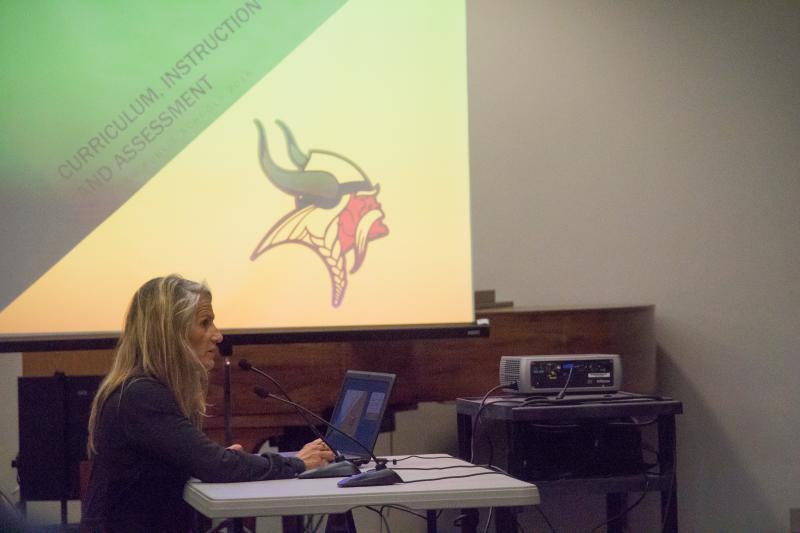Schools to focus on increasing math program rigor
Wareham Public Schools plan to focus on upping its students’ math skills by addressing the schools’ math programs’ rigor, as of a School Committee meeting Wednesday night.
Director of Curriculum and Instruction Andrea Schwamb presented a report to the Committee that included, among other things, specific assessment details of Wareham students’ math skills. She said there are two new math programs being piloted at John W. Decas Elementary School and Minot Elementary School, which allows teachers and students to determine the best model to teach and learn, respectively.
The two programs the schools are piloting are Eureka and enVision. Both programs are aligned to the state’s Common Core standards – standards that the state has determined all students must meet – but both approach teaching math differently. Eureka uses concrete, real-world examples to teach, while enVision uses a combination of interactive and visual learning tools, such as videos.
Committee member Cliff Sylvia remarked that he was concerned about piloting two programs at once.
“Half our staff are being trained in one method, and half are being trained in another method,” Sylvia said. “Half are going to be behind in catching up with the nuances of whatever program you choose when you pilot two.”
But Schwamb disagreed, saying that the schools “need more rigor.”
“We need to be at the minimum, and we are not there,” Schwamb said.
Schwamb also mentioned in her report that it is important that the teachers feel “empowered” and included, when decisions are made regarding how students are taught.
“I would ask teachers how they felt about a book or program they are using, and they would give me a look of surprise that I was asking,” Schwamb said. “My feeling is that, if teachers themselves don’t have a strong voice in making these decisions, it won’t work, regardless of what we have in place.”
“It almost didn’t matter if there were two [pilot math] programs, three programs, whatever, as long as it made the teacher feel empowered,” Chairman Geoff Swett said of Schwamb’s approach to implementing a better math program at the elementary schools. “I think you took the conservative approach. I applaud this … I think the process is going to work, because you want it to work.”
But – in an obvious reference to the district’s approach to MCAS scores – Schwamb also said she thought the schools “are so wrapped up in a score or a number on a test that is one day or two days long, that it has done our students such a great disservice, and [affected] their overall wellbeing and happiness.”
“I think we have a lot of work to do to bring that back a bit,” Schwamb said. “I think students sometimes get lost, especially in the elementary schools, because they spend so much time on English and math.”
“I almost hate to ask this, but what would be the impact on our standardized test scores?” Swett asked of the idea to pull back on such a narrow academic focus.
“I think we would be fine,” Schwamb said. “I think we would be better off. … It’s all really about effort, and hard work, and not absolute knowing, all the time.”
The Committee also approved the Middle School Handbook, and heard an outline for the budget plan of action for 2017.














